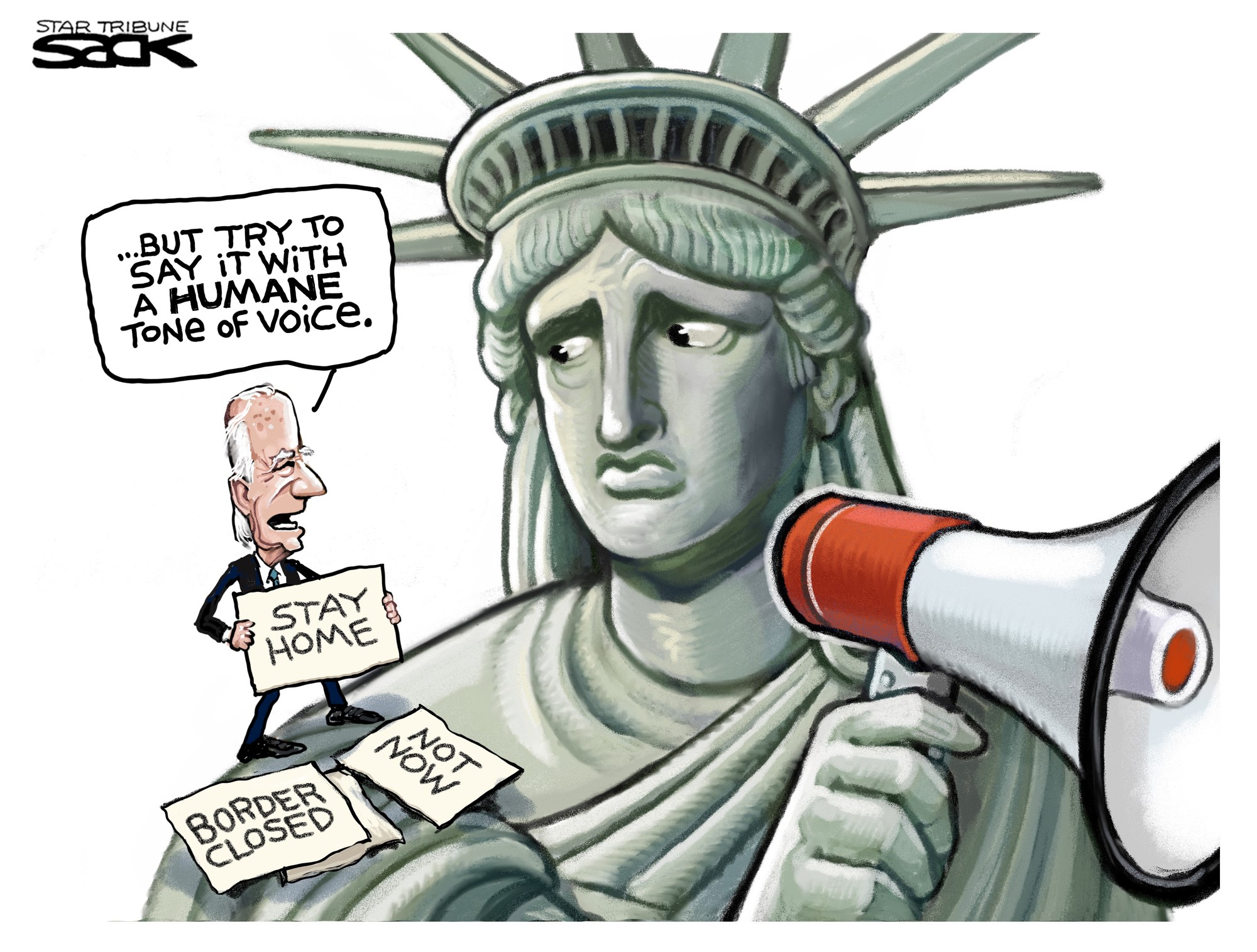Local View: Immigration has long, brutal history, legacy in US |
 |

From the column: "The focus ... seems to always be on the physical requirement to keep immigrants out. You do not get headlines like, 'Politician solves immigration crisis by hiring more clerks'.”
Published October 7th, 2023
By John Freivalds
Duluth News Tribune
Illegal aliens, migrants, undocumented immigrants, open borders: those are words and terms in today’s headlines — yet we forget that the Pilgrims we now hold in high regard didn’t arrive that way. In fact, historian John Kuroski notes that the original illegal immigrants were the Pilgrims who we venerate every Thanksgiving with table decorations and turkeys.
The Pilgrims arrived uninvited and lacking documentation to show the authorities (various Indian tribes) and had no visible means of support or even staying alive — nor did they speak the local languages. The romantic history is that the Indians provided the Puritans with the first Thanksgiving meal. Yet, Kuroski notes, “From religious extremism to child abuse to their brutal treatment of the Native Americans, the Pilgrims who built the Plymouth Colony were far more ruthless than you realize.”
What happened, another historian, Bernard Bailyn, continues, “is a legacy of brutality in intercultural relations developed through this period of which, of course, the overwhelming legacy was slavery.” Bailyn concludes in his book, “ The Barbarous Years ,” that, “The rules for chattel slavery were set.” And somehow history has sanitized our view of the immigrant Pilgrims.
Famed journalist H.L. Mencken was not fooled; he defined Puritanism as “the haunting fear that someone somewhere is happy.”
The legacy of brutality being levied today on undocumented immigrants began long before the current crop of politicians. The History Channel noted, “The tradition of separatism handed down from the Pilgrims imbued American social and political life with the brash individualism and political fractiousness so evident — and dangerous — today.”
To stem the onslaught of immigrants, who are human beings, politicians have used tough-guy symbols and solutions: “build a wall,” “how about floating barbed-wire coils in the Rio Grande?” “more border guards with guns,” “U.S. military on the riverbanks,” “watch towers,” “motion sensors,” and even, lately, “invade Mexico.” All that seems to be missing is a minefield along the border like the East Germans did with the Berlin Wall.
OK, remember the Cubans were the immigration nightmare of the 1980s. Because Cubans were fleeing from a communist dictator, they were given pretty much a free ride by the U.S. State Department. Some 350,000 Cubans were kicked out by Cuban Prime Minister Fidel Castro (who said he was flushing the toilet) and many were taken up by the Cuban diaspora.
As a former refugee from communism, I decided to be a sponsor. I stood in line to get them papers, work permits, and then jobs. In a year, they were self-sufficient, and all it took was someone to step forward.
Part of the solution to the current immigrant mess is getting people work permits. It only takes 15 minutes to fill out the forms, but there are not enough clerks. This from the Customs and Immigration Service on April 20: “The USCIS backlog for naturalization applicants now exceeds half a million. Wait times are long and vary widely across the country. In January 2023, field offices reported completing 80 percent of cases in between 12 and 24.5 months, depending on location.”
But no politician seems willing to comment on that. The focus instead seems to always be on the physical requirement to keep immigrants out. You do not get headlines like, “Politician solves immigration crisis by hiring more clerks.”
With work permits in hand, there are thousands of projects these immigrants could do. The U.S. has 46,876 miles of interstate highways lined with trash that needs to be picked up. That’s a start at least in dealing with the millions of immigrants.
We need to show a little humanity — as the Pilgrims did not do.
John Freivalds of Wayzata, Minnesota, is the author of six books, is the honorary consul of Latvia in Minnesota, and is a regular contributor to the News Tribune Opinion page. His website is jfamarkets.com.
